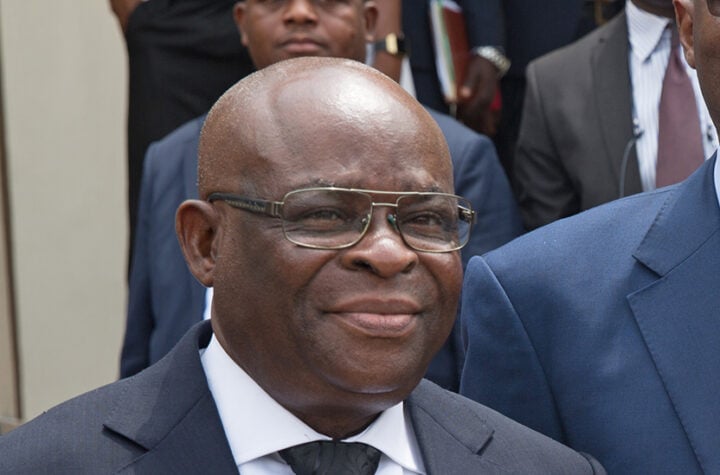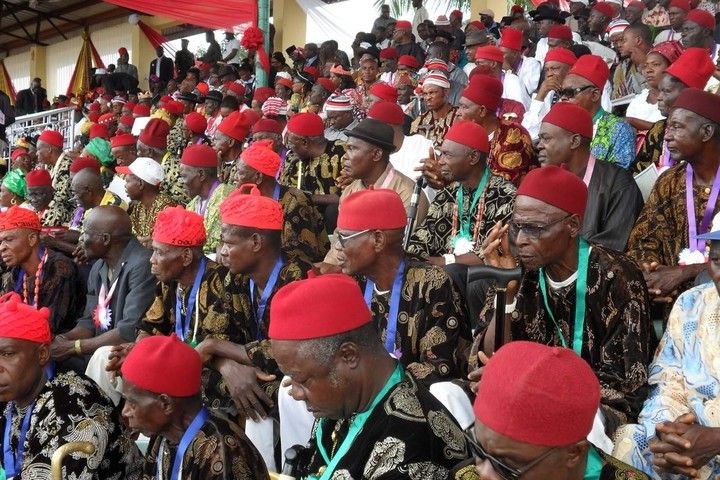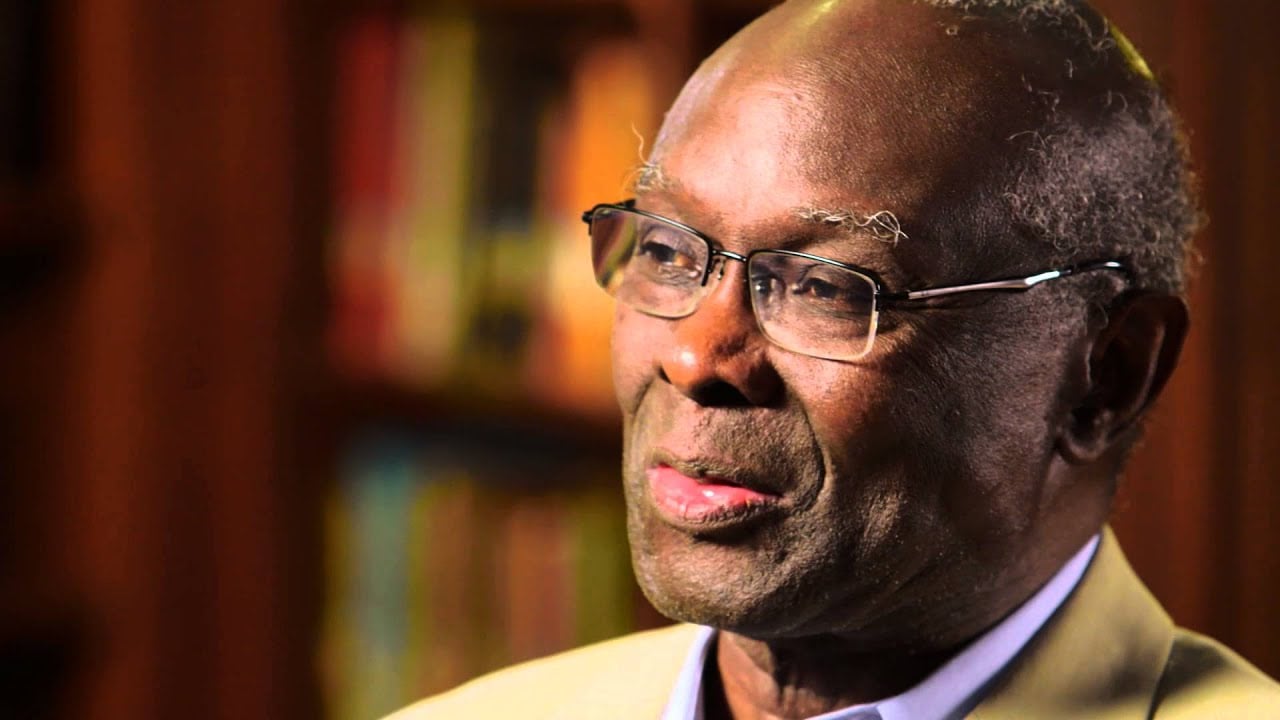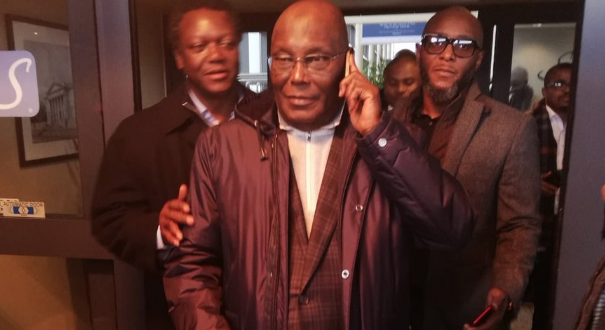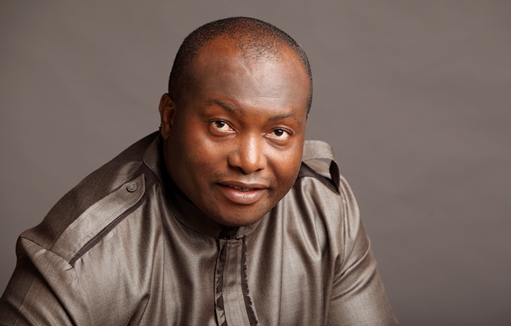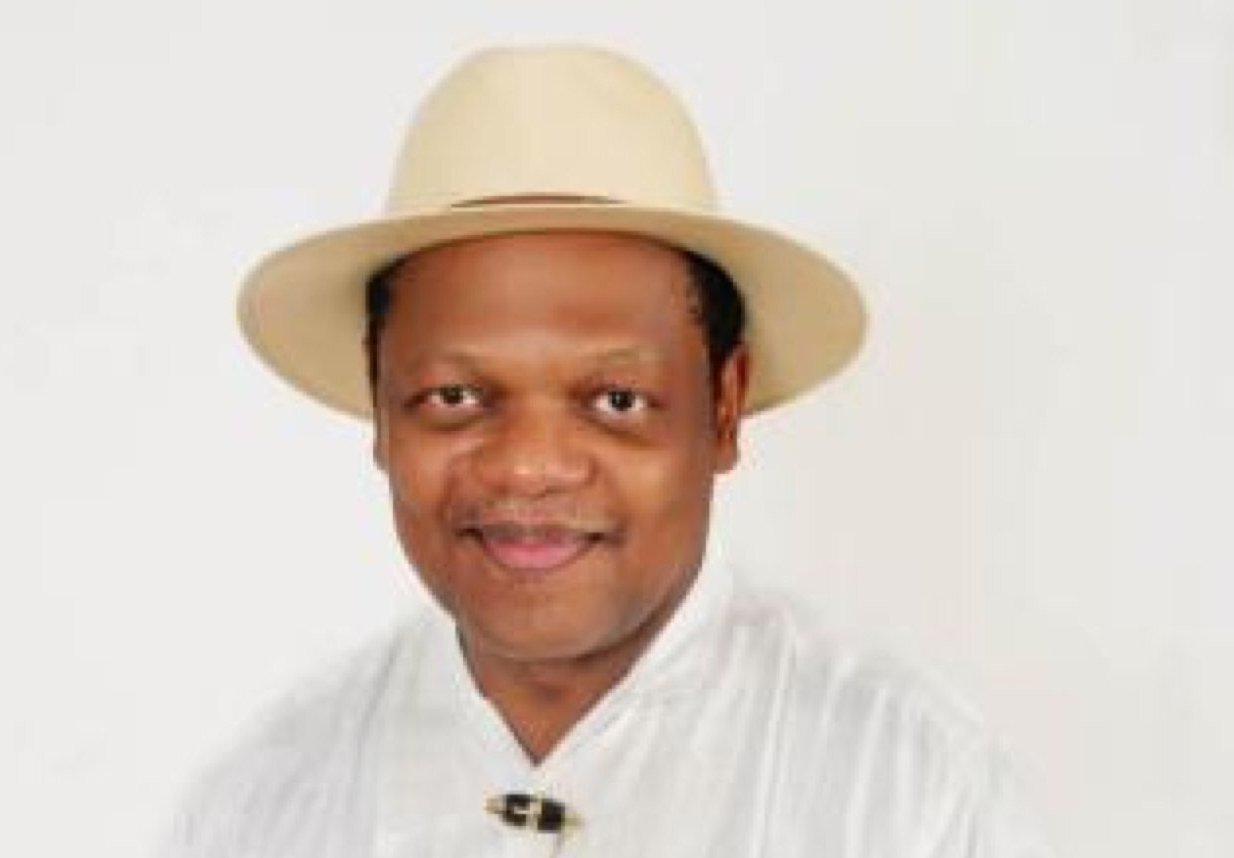BY GEORGE ANYIAM-OSIGWE
The Justice Walter Onnoghen saga is yet another interesting development in the national psyche of our country. In tandem with the developmental trend of our country, the public space suddenly witnessed a brouhaha arising from the announcement that the Chief Justice of Nigeria, Justice Onnoghen is in possession of some huge sums of money in his account. In the initial announcement, the numerous assets of Onnoghen was not emphasised.
Even if the government referred to estates owned by Onnoghen, the immediate attraction was the huge sums of money found in Onnoghen’s possession. When it is mentioned that sums like $700,000, $3,000,000 were found in an individual’s account, there is bound to be a national uproar. It was not unusual for the Onnoghen saga to attract as much of attention as it has done. Even when it is a matter of turnover, with the figures of $1,922,657 and £138, 439.00 being sums transacted through Chief Onnoghen’s accounts from 2012 to 2016, a lot of questions and concern is bound to be elicited. When this is juxtaposed with the sum of N91, 962.362.49 transacted in his Naira account from September, 2005 to October, 2016 and 55,154.00 Euro left in his Euro Account as at September 30, 2016, the Onnoghen saga, perhaps “the Onnoghen gate” could not have generated less concern.
With the request sent to the Nigeria Financial Intelligence Unit among others, no doubt, more provoking facts are bound to emerge about the Onnoghen assets issue. One primary fact that came with the Onnoghen saga is the impartation that the Nigerian people are no longer moved about embezzlement by public officials. The level of defense that Onnoghen has attracted makes one scared about the future of our country. The odious orgy that goes with corruption has become normalised in the Nigerian space. The amount of money involved in the Onnoghen probe has become less the issue. The elites are latching on legal quibbles to give positive coloration to a heinous crime in ordered societies.
Advertisement
I would proceed to address the points at issue on the Onnoghen saga as I see it. First, the President is accused of not following due process in the suspension of Onnoghen. This matter is taken by its proponents in isolation of other developments that preceded the president’s action. It is reported and has, in fact, become public knowledge that the body constitutionally positioned to interrogate the Chief Justice of Nigeria in the event of a query or a petition against the Chief Justice is the Nigeria Judicial Council (NJC). With the awareness that the state is prying into his accounts and he is to be interrogated on the amounts and dimension of transactions in the said accounts, the Chief Justice of Nigeria, Chief Walter Onnoghen suspended the sitting of the NJC indefinitely. This becomes very weighty when it is acknowledged that a meeting of the NJC is not possible without the approval of the Chief Justice of the Supreme Court. In the enabling act of the NJC, it is stated that “the council shall hold meetings at such times and place as the chairman may appoint”. Where it applies, “a meeting of the council shall be convened if five or more members make a request to that effect, in writing to the chairman, specifying the business to be transacted”. When this is placed side by side the provisions for membership of the NJC, through which over 2/3 of its members are selected by the NC, it indicates that Onnoghen has actually performed a coup against any attempt to question his weird indulgences.
If Onnoghen was not guilty, why would he suspend the sitting of the NJC indefinitely? Having done that and knowing that the NJC is the only body through due process and constitutional conformity by which he could be questioned, Onnoghen had subverted justice and crippled the capacity of the Nigerian state to check his misdemeanours. Therefore, the President acting through a motion ex parte of the court might not have had a better option to rescuing Nigeria from the evil claws of Onnoghen.
The response of the bar further to the suspension of Onnoghen is not unexpected and is not unpatriotic. It is purely professional. It is the fear that a precedent as such if tolerated could be exploited by ill intended leaders in future to perpetuate patently evil intentions. However, in trying to defend the legal profession or the bench as it were, it was proper for the lawyers to appreciate the damage that Onnoghen has done to the image of the bar and the bench. Meeting a point of balance in calling the president to order was most important for the totality of the mass to be carried along.
Advertisement
It is obvious in the argument of our lawyers that the emphasis is the point of law. But the Onnoghen saga is not as simplistic as that. There is a legalistic dimension to the matter as there is a moral dimension. I note that the question of the preservation of our democracy and the legal institutions remains fundamental but in this case, it begs the question. It is submitted here that people must find the basis to stay together before they start to talk about the law.
The basis for community and social cohabitation does not begin with the law. It begins with the moral integral. People will find the need to come together and cohabit with an inherent or deduced understanding that they will be truthful to one another – the moral premise. The early human communities did not begin with the law. They derived from the moral foundation. The law is a secondary layer engagement in sustaining community as it gives juridical executive enforcement to laws which themselves derive from the moral cannons.
Therefore, with Onnoghen trying to subvert the institutions of due process of the country, in running accounts that do not reflect what he earns in salaries as a judge, Onnoghen has infringed on the moral premise; the foundation of community, the primary pillar from which everything about our coexistence devolve. Onnoghen has endangered the basis for our coexistence as a people. Meandering through the provisions of the law and emasculating this more devastating evil was the point of error on the part of most of our commentators. For democracy to exist, community must first exist. Also, for the judiciary to exist, community must be in existence. Thus, to destroy the basis of community inadvertently negates the institutions we claim we are protecting. Onnoghen was and is the problem. The errors of the executive were enabled by or incidental to his subterfuge. The primary issue is the moral ethos and not its legalistic underpinning.
This Onnoghen matter remains very sensitive on the eve of election. But we will not for the fear of being branded, fail to provide a rudder for our country in her quest for continuing development. While many have found the anti-corruption crusade of the present administration unsatisfactory, the reality is that something is being done. The dangerous impact of corruption on our underdevelopment cannot be overtstated.. It could be selective as criticised. It could also be vindictive as criticised. But the truth is that something is being done. We have always spoken about corruption and the need to curtail corruption in Nigeria. In this regime there is a scathing resolve to curb the orgy of corruption in our country. Without doubt, that strong resolve is contesting with the nuances of bourgeois politics and finds itself limited by the internal contradiction within the democratic process.
Advertisement
It is painful that the structural limitation of our country hampers the extent that we can go with anticorruption initiatives. It is painful for communities and ethnic nationalities to defend their so-called sons when they are accused of corruption. Communities mobilise their natives to Abuja to protest and threaten government when their sons and daughters are accused of profligacy, and other forms of corruptive indulgences perpetuated as officers of state. Sadly, the people who are hired for these protests are the core poor who are also the most affected by this odium. In the case of Onnoghen, we watched the quick move to brand it as a reflection of Buhari’s nepotism. The Niger Delta people were being sensitised to an ethnic solidarity for Onnoghen. The issue here is that a Nigerian who has been entrusted with managing the image and offices of this country has perverted trust and appropriated illegitimate benefits that endanger individuals privately and the country generally.
How many Niger Delta people have had their cases traded away by bribed judges from the Niger Delta and had ended up with suicide deriving from the severe injury it had inflicted on them? If the monies found in Onnoghen’s accounts actually comes from bribes in handling judicial cases, then he would have caused so many terrible infractions some of which might have led to untimely death.
It is appreciated that we are in a political era, more so an election period. People with deepened political biases would exploit any point to sell their candidates and bring down the acceptability of their opponent. But in doing this, we must place the interest of the country above all subjective interests. The performance or otherwise of the Buhari regime does not excuse the tolerance of the moral decadence of Onnoghen. This separation must be made and very clearly.
Finally, I note that rather than finding faults and calling for solutions that will further heat up the polity, it is important for us to look at the constitutional provisions that placed us on this pedestal and take steps to forestall future reoccurrence of this kind of development. If the Nigeria Judicial council is the only body that can try the Chief Justice of the country, then he cannot solely hand pick nearly every member of the body and at the same time chair the body. Furthermore, he holds the sole authority to permit the sitting of the body. No doubt, Onnoghen was sure that he had all the powers to protect himself within the bounds of the constitution of our country and brazenly indulge in his nefarious activities sure that nobody can check him.
Advertisement
In the NJC act of the 1999 constitution as amended: The constitution says the NJC shall have power to, among other things: recommend to the president the removal from office of the specified judicial officers and to exercise disciplinary control over such officers;
recommend to the governors the removal from office of the judicial officers in the states,
collect, control and disburse all moneys, capital and recurrent, for the judiciary;
advise the president and governors or any matter pertaining to the judiciary as may be referred to the council by the president or the governors; appoint, dismiss and exercise disciplinary control over members and staff of the council. The composition of the council according to the 1999 constitution is skewed as such: The chief justice of Nigeria who shall be the chairman, the next most senior justice of the supreme court who shall be the deputy chairman, the president of the court of appeal, five retired justices selected by the CJN from the supreme court or court of appeal, the chief judge of the federal high court, five chief judges of states to be appointed by the CJN from among the chief judges of the states and of the high court of the FCT, Abuja one grand kadi to be appointed by the CJN from among grand kadis of the Sharia courts of appeal to serve in rotation for two years; one president of the customary court of appeal to be appointed by the CJN from among the Presidents of the Customary Courts of Appeal to serve in rotation for two years, five members of the Nigerian Bar Association (NBA) who have been qualified to practise for a period of not less than 15 years, at least one of whom shall be a SAN, appointed by the CJN on the recommendation of the national executive committee of the NBA to serve for two years and subject to re-appointment, provided that the five members shall sit in the Council only for the purposes of considering the names of persons for appointment to the superior courts of record, and
two persons not being legal practitioners, who in the opinion of the CJN, are of unquestionable integrity.
By this composition, the problem is explicit. Rather than cry war and destabilise the polity, endangering the same institutions we are claiming to defend, the point at issue is actually a constitutional reform to save the judiciary at least from the hands of the Chief Justice who is the chief executive, judge and financial director of the body as chairman of the NJC.
Advertisement
George is the president of the Mission for Democracy in Africa Project, an initiative of the Osigwe Anyiam-Osigwe Foundation
Advertisement
Views expressed by contributors are strictly personal and not of TheCable.
Add a comment
